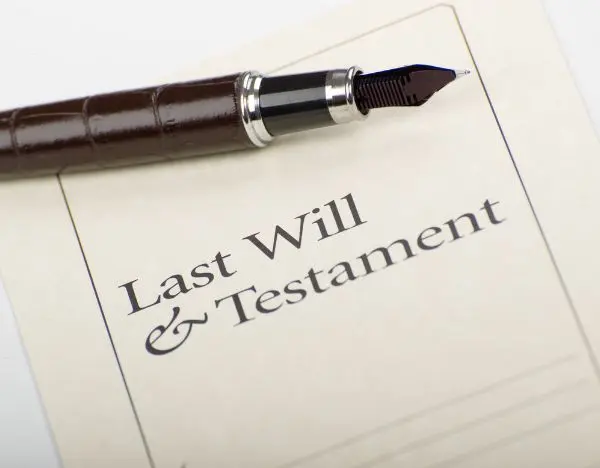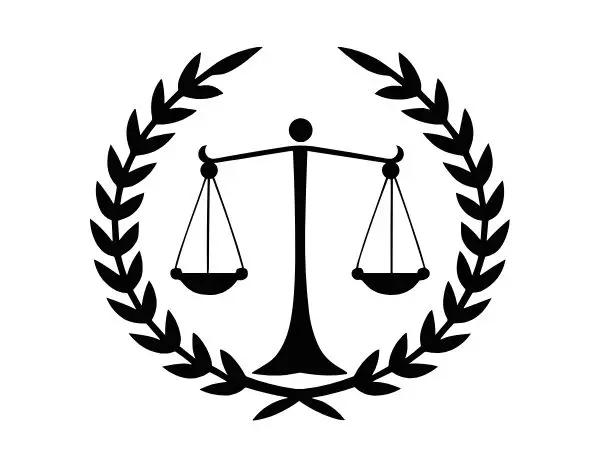When a loved one passes away, their estate enters the probate process to ensure proper distribution of assets according to their wishes. The executor of a will plays a crucial role in this process, serving as the person responsible for carrying out the deceased's instructions. But what happens when an executor fails to fulfill their duties or abuses their position? At NW Legacy Law, we often receive questions about whether beneficiaries can sue an executor of a will. The short answer is yes, but only under specific circumstances.
Can You Sue an Executor of a Will?
Yes, you can sue an executor of a will if they breach their fiduciary duties to the estate and its beneficiaries. Valid grounds for such lawsuits include self-dealing (using their position for personal gain), misappropriating estate assets, significantly delaying the probate process without justification, failing to follow the will's terms, neglecting to pay creditors, or refusing to provide a proper accounting of estate activities. In Washington State, beneficiaries can petition the probate court to address these issues.
However, not every disagreement with an executor's decisions constitutes legal grounds for a lawsuit. Courts recognize that estate administration involves complex decisions and typically give executors reasonable discretion in carrying out their duties. Before pursuing litigation, beneficiaries should attempt direct communication with the executor, consider mediation, and consult with an estate planning lawyer to evaluate whether the executor's actions truly violate their legal obligations. Lawsuits should generally be considered a last resort after other resolution methods have been exhausted.
What is an Executor of a Will?
An executor of a will is the person or entity legally appointed to administer a deceased person's estate according to the terms specified in their will. This individual has fiduciary responsibility to gather the deceased's assets, pay valid debts and taxes, and distribute the remaining property to the designated beneficiaries. The executor must act in the best interests of the estate and its beneficiaries, keeping accurate records and following all applicable probate laws.
The executor serves as the official representative of the estate, with authority to access accounts, sell property if necessary, defend the will against legal challenges, and make decisions within the scope of their duties. They are entitled to reasonable compensation for their services, though they may decline payment. Most executors are trusted family members, friends, or professionals like attorneys or financial institutions, chosen by the will's creator for their trustworthiness, organizational skills, and ability to handle the responsibilities involved.
The Executor's Fiduciary Duties
An executor of a will has a fiduciary duty to the estate and its beneficiaries. This means they must act with the highest degree of care, honesty, and loyalty when managing the estate. The executor's primary responsibilities include:
- Inventory Management: Collecting, protecting, and creating a complete inventory of all estate assets.
- Debt Satisfaction: Paying valid debts, taxes, and expenses of the estate using estate funds.
- Asset Distribution: Distributing the remaining assets to beneficiaries according to the terms of the will.
- Legal Compliance: Following Washington State probate laws and court procedures throughout the administration process.
- Transparent Communication: Keeping beneficiaries reasonably informed about estate administration progress.
- Impartial Administration: Managing the estate without favoring certain beneficiaries or pursuing personal gain.
- Prudent Investment: Making reasonable investment decisions with estate assets during the administration period.
- Accurate Record-Keeping: Maintaining detailed records of all transactions involving estate assets.
When executors fail to meet these fiduciary responsibilities, they may be held legally accountable through a lawsuit.
Valid Reasons to Sue an Executor of a Will
Not every disagreement warrants legal action against an executor. At NW Legacy Law, we help clients distinguish between legitimate grounds for a lawsuit and normal administrative challenges. Here are valid reasons that may justify suing an executor of a will:
- Self-Dealing Actions: The executor has used their position to benefit themselves at the expense of beneficiaries, such as selling estate property to themselves at below-market prices.
- Fraudulent Behavior: The executor has engaged in deceptive practices, such as hiding assets, forging documents, or misrepresenting information to beneficiaries or the court.
- Significant Negligence: The executor has failed to exercise reasonable care in managing estate assets, resulting in substantial financial losses.
- Unreasonable Delays: The executor has caused unjustified delays in estate administration that harm beneficiaries' interests.
- Improper Asset Distribution: The executor has distributed assets contrary to the terms specified in the will.
- Failure to Pay Debts: The executor has neglected to pay legitimate creditors, resulting in additional costs to the estate.
- Commingling Funds: The executor has mixed personal funds with estate assets, making it difficult to track estate property.
- Breach of Confidentiality: The executor has shared private estate information with unauthorized parties.
- Accounting Refusal: The executor has failed to provide a complete accounting of estate assets and transactions when legally required to do so.
- Court Order Violations: The executor has disregarded specific instructions from the probate court.
Each of these situations represents a potential breach of fiduciary duty that may warrant legal action against an executor of a will.
What To Do Before Suing an Executor of a Will
Before initiating a lawsuit against an executor, we recommend beneficiaries consider these preliminary steps:
- Direct Communication Attempt: First, try to resolve issues through clear, documented communication with the executor about your concerns.
- Legal Counsel Consultation: Speak with an estate planning lawyer who can evaluate the situation and advise whether legal grounds exist for a lawsuit.
- Informal Resolution Methods: Consider mediation or other alternative dispute resolution approaches before pursuing formal litigation.
- Documentation Collection: Gather all relevant documents, correspondence, and evidence that supports your concerns about the executor's conduct.
- Beneficiary Collaboration: Connect with other beneficiaries who may share your concerns to present a unified position.
- Demand Letter Preparation: Have your attorney prepare a formal demand letter outlining the issues and requested remedies.
- Cost-Benefit Analysis: Carefully weigh the potential costs of litigation against the possible benefits, considering both financial and emotional factors.
- Timeline Awareness: Understand that there are strict deadlines for bringing claims against an executor in Washington State.
Taking these steps can often resolve issues without the need for a lawsuit or strengthen your position if litigation becomes necessary.
The Legal Process of Suing an Executor of a Will
If you decide to sue an executor of a will in Washington State, understanding the legal process is important:
- Petition Filing: The process typically begins by filing a petition with the probate court that's overseeing the estate administration.
- Specific Relief Request: Your petition must clearly state what actions you're asking the court to take, such as ordering an accounting, removing the executor, or awarding damages.
- Evidence Presentation: You'll need to present evidence supporting your claims of executor misconduct during court proceedings.
- Burden of Proof Requirement: As the person bringing the lawsuit, you bear the burden of proving the executor breached their fiduciary duties.
- Executor Response Opportunity: The executor will have the opportunity to respond to your allegations and present their own evidence.
- Possible Court Hearings: The court may schedule one or more hearings to consider testimony and arguments from both sides.
- Judicial Determination: After reviewing all evidence, the judge will make a determination about whether the executor breached their duties.
- Potential Remedies: If the court finds in your favor, it may order various remedies, from requiring specific actions to removing the executor entirely.
This process can be complex and typically requires the guidance of an estate planning lawyer with litigation experience.
Potential Outcomes When Suing an Executor of a Will
When suing an executor of a will, several possible outcomes may result:
- Executor Removal: The court may remove the executor from their position and appoint a successor if serious misconduct is proven.
- Financial Restitution: The executor may be personally liable for financial losses caused by their breach of duty.
- Specific Performance Order: The court may order the executor to take specific actions, such as providing an accounting or distributing certain assets.
- Fee Denial: The executor may be denied some or all of the compensation they would normally receive for their services.
- Increased Supervision: The court might impose additional oversight requirements on the executor rather than removing them completely.
- Legal Costs Assignment: The court may order the executor to personally pay legal costs rather than using estate funds.
- Criminal Consequences: In cases involving fraud or theft, the executor might face criminal charges separate from the civil lawsuit.
- Dismissal Possibility: If insufficient evidence exists, the court may dismiss the case, allowing the executor to continue their role.
Each case is unique, and outcomes depend on the specific circumstances and evidence presented.
Preventive Measures to Avoid Executor Disputes
At NW Legacy Law, we believe preventing executor disputes is preferable to litigation. Consider these preventive measures when creating your estate plan:
- Careful Executor Selection: Choose someone trustworthy, organized, and capable of handling the responsibilities involved in estate administration.
- Multiple Executor Consideration: In some cases, naming co-executors provides checks and balances that reduce misconduct risk.
- Clear Will Language: Ensure your will contains clear, specific instructions that leave little room for interpretation or discretion.
- Professional Executor Option: Consider naming a professional fiduciary or trust company as executor for complex estates or when family dynamics are challenging.
- Regular Estate Plan Updates: Review and update your will regularly to ensure it reflects your current wishes and circumstances.
- Family Communication Promotion: Discuss your estate plan with family members to set appropriate expectations and reduce misunderstandings.
- Letter of Explanation Addition: Consider leaving a non-binding letter explaining your reasoning for certain decisions to help beneficiaries understand your intentions.
- Executor Compensation Specification: Clearly state how the executor should be compensated to prevent disputes over reasonable fees.
These measures can significantly reduce the likelihood of problems with executor performance and subsequent litigation.
The Role of an Estate Planning Lawyer in Executor Disputes
Whether you're concerned about a potential executor breach or need guidance as an executor facing accusations, an estate planning lawyer provides valuable assistance:
- Situation Evaluation: An estate planning lawyer can objectively assess whether an executor's actions constitute a breach of fiduciary duty.
- Evidence Analysis: Your lawyer will help gather and evaluate evidence supporting or defending against claims of executor misconduct.
- Strategic Planning: Based on the specific circumstances, your lawyer will develop the most effective strategy for addressing executor issues.
- Negotiation Representation: Often, executor disputes can be resolved through negotiation before formal litigation, and your lawyer can represent your interests in these discussions.
- Court Documentation Preparation: If litigation becomes necessary, your lawyer will prepare and file all required court documents.
- Legal Argument Development: Your lawyer will develop compelling legal arguments based on Washington State law and relevant precedents.
- Witness Preparation: If your case goes to court, your lawyer will help prepare you and other witnesses for testimony.
- Settlement Consideration: Throughout the process, your lawyer will help evaluate any settlement offers to determine if they adequately address your concerns.
At NW Legacy Law, we provide experienced guidance for both beneficiaries and executors involved in disputes over will administration.
Common Misconceptions About Suing an Executor of a Will
Several misconceptions exist regarding lawsuits against executors:
- "Any Dissatisfaction Justifies a Lawsuit" Myth: Not every disappointment with an executor's decisions provides legal grounds for a lawsuit; only genuine breaches of fiduciary duty qualify.
- "Quick Resolution" Expectation: Executor litigation often takes considerable time to resolve, sometimes extending the estate administration process significantly.
- "Estate Pays All Costs" Assumption: While estate funds often cover reasonable executor defense costs, beneficiaries typically must pay their own legal expenses unless the court orders otherwise.
- "Automatic Removal" Belief: Even when some improper conduct is proven, courts often prefer less drastic remedies than removing an executor entirely.
- "Personal Disagreement" Confusion: Disagreeing with an executor's legitimate discretionary decisions rarely constitutes grounds for a successful lawsuit.
- "All Assets Frozen" Misunderstanding: Filing a lawsuit doesn't automatically freeze estate administration; specific court orders are needed to halt distributions.
- "Guaranteed Recovery" Expectation: Even successful lawsuits may not recover all losses if the executor lacks personal assets to pay damages.
- "Simple Process" Misconception: Litigation against executors involves complex legal standards and procedural requirements that typically necessitate professional legal assistance.
Understanding these realities helps beneficiaries make informed decisions about whether to pursue legal action against an executor of a will.
Get Experienced Legal Help With Executor Disputes
If you're facing challenges with an executor's performance or need guidance as an executor responding to concerns, don't wait until the situation escalates. At NW Legacy Law, we provide clear, practical advice for addressing executor issues while protecting estate assets and beneficiary interests. Contact us today to schedule a consultation and explore your legal options under Washington State law.





